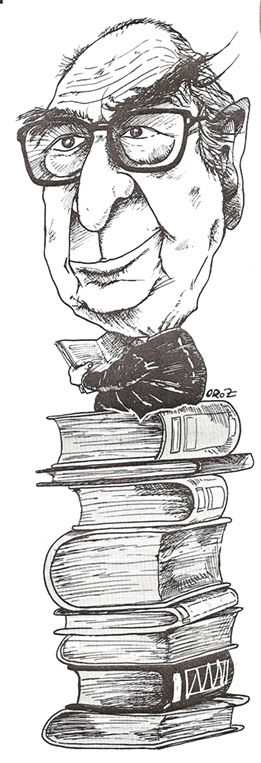Francisco Ynduráin Hernández (Aoiz, 1910 / Madrid, 1994) completed his high school education at the Javier School and pursued his studies in Philosophy and Letters at the University of Salamanca, where he graduated with honors.
Subsequently, he earned his doctorate in Madrid. After securing a teaching position at the University of Salamanca in 1935, he later obtained the Chair of Language and Literature at the Faculty of Philosophy and Letters of the University of Oviedo in 1940, and the following year, he moved to the University of Zaragoza. He served as a professor at this university for thirty years, temporarily holding positions as Vice-Dean and Vice-Rector.
In 1971, he joined the Complutense University of Madrid, where he eventually retired. He also served as the Secretary-General and Rector of the “Menéndez Pelayo” International University. Additionally, he was actively involved in teaching at universities worldwide, delivering numerous courses and lectures.
Since 1966, he was a corresponding member of the Royal Spanish Academy and a member of the History Academy since 1968. He also served as a Counselor for the “Miguel de Cervantes” Institute, the Higher Council for Scientific Research, and the “Juan March” Foundation.
Among the accolades he received, notable honors include the Alfonso X the Wise Award with a plaque and the “Officier dans l’Ordre des Palmes Académiques” (1963), awarded by the French Ministry of Education, as well as the “Príncipe de Viana” Prize in its 1994 edition.
His bibliography comprises over 75 publications, in addition to preparing more than 30 critical editions, translating works, and providing forewords for numerous books, including José María Iribarren’s “Vocabulario Navarro,” Ángel Urrutia’s “Antología de la poesía navarra actual,” José Amichis’ “Mi Pueblo,” and “Antología Bilaketa de Poesía,” Volume 11.
His works primarily focused on the fields of Hispanic philology and literature. As a Professor of Literature History, his main interests centered on the Golden Age, contemporary novels, and particularly the Generation of ’98.



